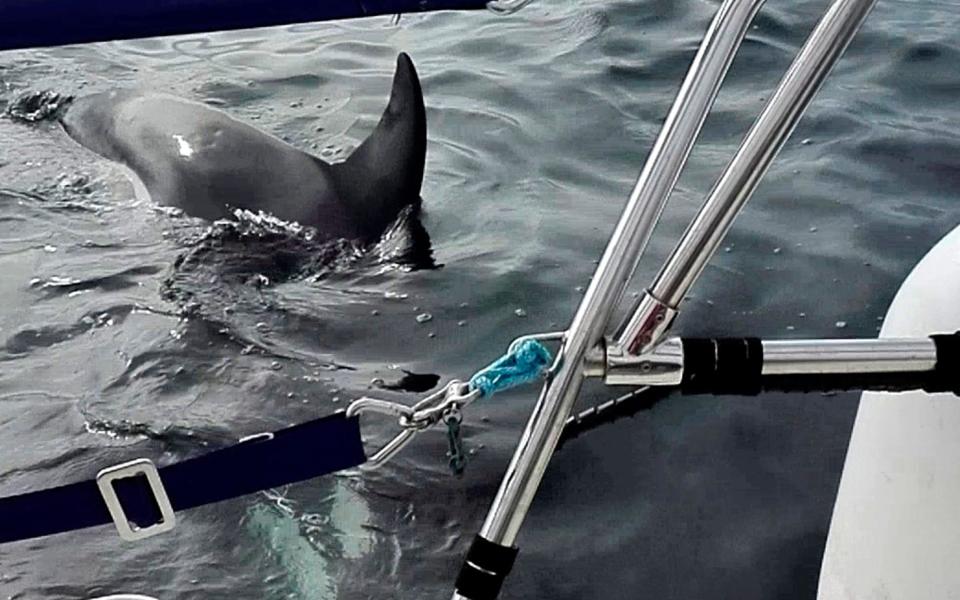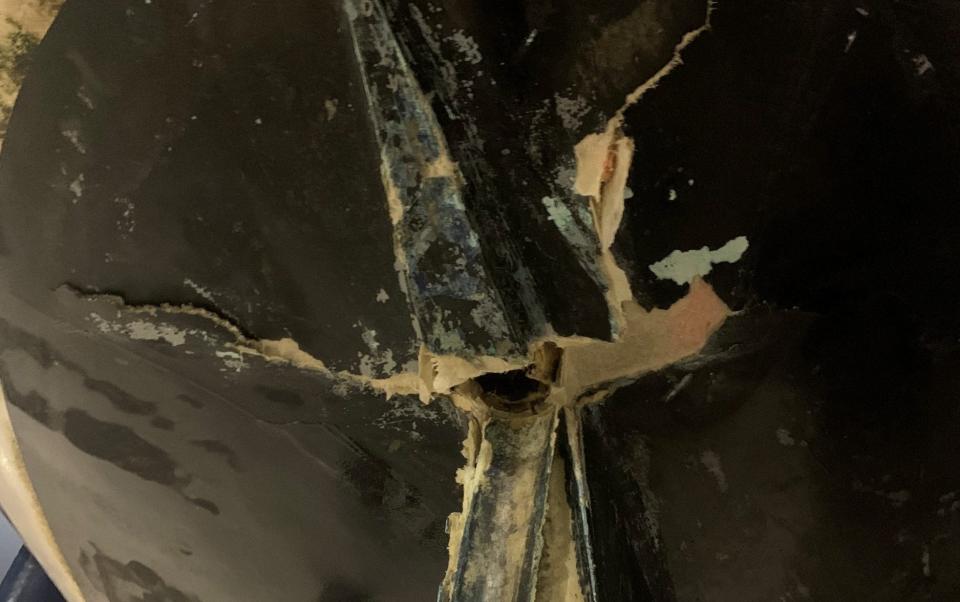Sailors have a new way to stop killer whale attacks

British sailors have been told to take bags of sand on their yachts to protect themselves from killer whales responsible for hundreds of attacks on boats in the Strait of Gibraltar.
More than 250 yachts have been damaged, and three sunk, since the attacks in the Strait and off the coast of Spain and Portugal were first reported in 2020.
A female orca named White Gladis, possibly traumatised after colliding with a boat, is thought to have taught her fellow whales to attack the passing vessels.
Fifteen orcas of the region’s population of 35 killer whales are responsible for the ram raids, which usually involve the apex predators headbutting a boat’s rudder to destruction.

But sprinkling sand into the water around the rudder confuses the orca’s sonar and could keep a boat mobile during an attack, the Cruising Association said.
“It doesn't have to be a lot of sand. A few kilogrammes,” said John Burbeck, the Orca Project Team Leader at the Cruising Association.
“The orcas are coming in on sonar, not sight. We know that. And sand around the rudder confuses that sonar picture they're picking up,” he said.
One skipper reported successes with the sand method, which requires five to eight kilograms of material and creates “an acoustic mirror effect”, in April this year.
The trick, according to the Cruising Association, is to hide the rudder behind a screen of sand, while preparing to reverse.
Mr Burbeck said the deterrent worked best, if combined with the crew banging pots and pans on deck to encourage the pod to break off their attacks, which can last over an hour.

Research is continuing into whether racing for the shallows is a good tactic, because the orcas prefer to be in areas where tuna, their main prey, are commonly found.
No one has so far been seriously hurt in the attacks by the fiercely intelligent animals that can travel up to 100 miles a day.
Some researchers believe the learnt behaviour is playful, but others see the attacks as more predatory or even as revenge for White Gladis’ trauma.
“The thing that worries us is the time that an orca hits with such force, that someone is knocked over in the cockpit and fractures their skull. The whole dynamic of our relationship with this endangered population will change,” said Mr Burbeck.
The Cruising Association has been collating data and reports of the orca attacks, while working closely with Portuguese and Spanish marine biologists. There are apps and social media accounts, which have been set up to help skippers report interactions and warn other sailors that belligerent orcas may be nearby.
Thousands of boats can be found in the Strait of Gibraltar during the summer season, when the number of orca encounters typically increases.
Boats have been sunk because the whales hit the rudder with such force that it splits the hull.
Since the start of this year, there have been 26 interactions, with one boat sunk to add to the two that went down last year.

Of the 26 encounters, 21 were in the Strais, with five off the coast of Portugal, but the whales were spotted as far north as Brest in France last year. There were 11 orca attacks in May alone.
On Thursday, killer whales severely damaged a sailing boat off southern Spain and forced the four-strong crew to call for help.
The orcas broke the rudder of the Mustique, a British-flagged vessel, and pierced its hull.
Spanish authorities deployed a rapid response boat and helicopter carrying a bilge pump and towed the 66-foot boat to the port of Barbate in Cadiz for repairs.
“It’s an experience I will never forget,” Stephen Bidwell, 58, said of a separate attack by six orcas on a boat he was sailing on on May 2.
“I kept reminding myself we had a 22-ton boat made of steel, but seeing three of them coming at once, quickly and at pace with their fins out of the water was daunting,” the photographer from Cambridge said.

 Yahoo Sports
Yahoo Sports 